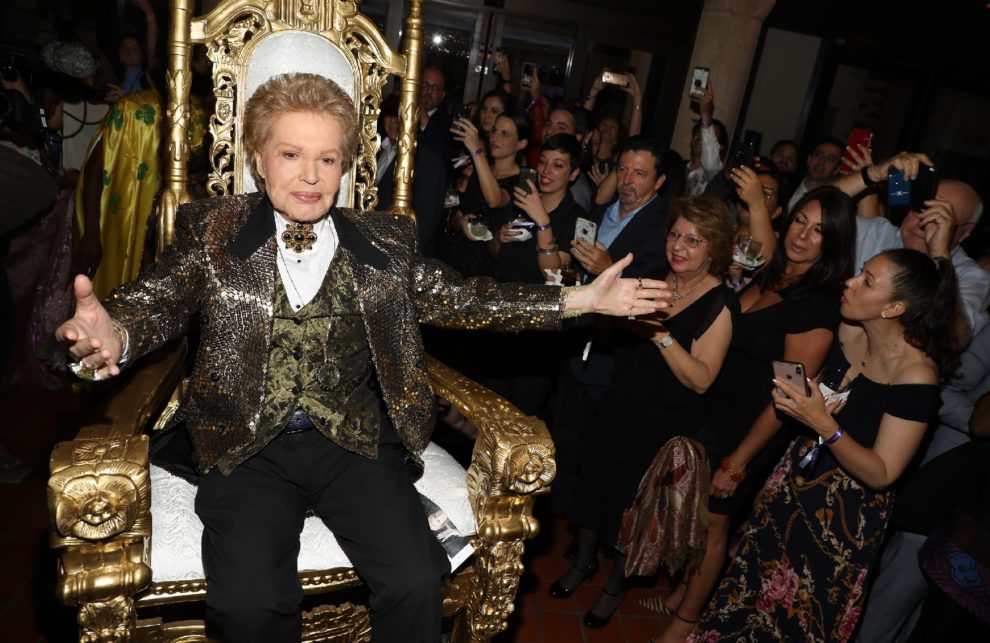Motivated by a deep passion for film, Kareem Tabsch is a queer Latino filmmaker whose latest Netflix project, Mucho, Mucho Amor: The Legend of Walter Mercado, shows us the possibility in following your passion.
Born and raised in the hoods of Miami as a first generation American, Tabsch was not privileged with an easy start in filmmaking.
Yet by working his way up through the art and film scene, he was able to establish himself not only as an award-winning storyteller, but also as a co-founder and co-director of O Cinema, the largest arthouse cinema in Miami.
Now, his accolades range from documentary films to contributions to Miami’s film culture, a reflection of his life-long drive and devotion to film.
Different and Obscure
From a young age, Tabsch was drawn to different and obscure things. The self-proclaimed “PBS Junkie” found a means of informal film education through the old black and white classics that would play every day for the PBS segment, The Movies at Two. And so began his admiration for cinema.
Graduating from his PBS years, Tabsch was hired as a video store employee while in high school, which he described as a “whole other world of movies—new and old and obscure—that were now at [his] fingertips” because of his ability to access them for free as an employee.
As a result, his film education would expand.
The World’s Fanciest Cat
After graduating high school and facing pressure by well-intentioned immigrant parents, he decided to go to college for medicine. However, after a few years, Tabsch changed his mind and dropped out of college to pursue film instead.
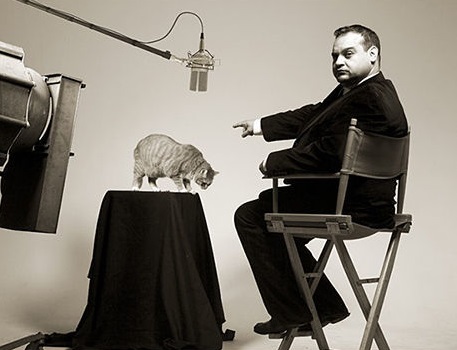
Beginning as a freelance writer for arts and entertainment, Tabsch was able to climb the ranks in the Miami art scene by way of film festival jobs and networking with those in the industry.
In 2014, with the help of cinematographer/editor Joey Daoud and co-producer Andrew Hevia, 34-year-old Tabsch made his first documentary short, “Cherry Pop: The Story of the World’s Fanciest Cat,” proving not only is someone never too old to accomplish goals, but that there is no “right way” to begin a career in the arts.
He also demonstrated someone does not need a formal film education or official mentorship. As he advises, “Not everybody has the opportunity to throw themselves all in and do it. Some people might have to have a regular job, but if you want to do it, you’ll find time. You’ll find time. You’ll find the resources. Just believe that you have a voice that’s important to be heard.”
Self-Discovery
Tabsch discovered his voice in the place he was raised. But while his work is a testament to his appreciation of Miami, his original wish was to leave the city for a place more culturally and artistically diverse like New York.
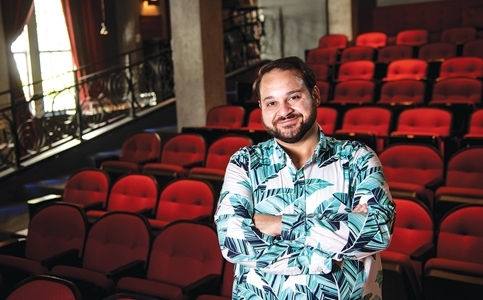
His mind would change after two momentous events.
Firstly, Tabsch purchased a vehicle, an investment that was more than a mode of physical transportation. His car was his means of traveling to the diverse cultural worlds of Miami that he was unaware of while growing up.
Secondly, his father was suffering from a heart disease that consistently threatened his life. His father’s health condition became another reason that he felt he was meant to stay. He realized there was so many stories in Miami to tell and he continues to pay homage to his home throughout his art.
Tabsch has also found his voice through stories that he considers “are larger than life, that are really out there, that are really kind of brazen and in your face.”
“I feel like I like to present the facts, the many layers of the story and let people decide how they feel about it.“
His love for sharing stories about complicated people and events, some taboo and some eccentric, speaks to his fascination with those on the edge of society.
His mission is never to ridicule or persecute, but rather, as he explains, to show “that there’s a beauty and an encouragement that comes to being who you are, regardless of how you might be thought [of].”
The Daily Chela recently had the chance to speak with Tabsch and discuss everything from film to life to business to the LGBTQ community.
Do you have any favorite directors? Are there any that you really admire?
I’m a huge Hitchcock fan I think Hitchcock still stands up as one of the greatest filmmakers of all time. He’s the first person who comes mind. Gosh, there’s so many. I love Billy Wilder. I’m thinking in a classic Hollywood sense right now, but I love Billy Wilder. [There’re] so many directors I really love.
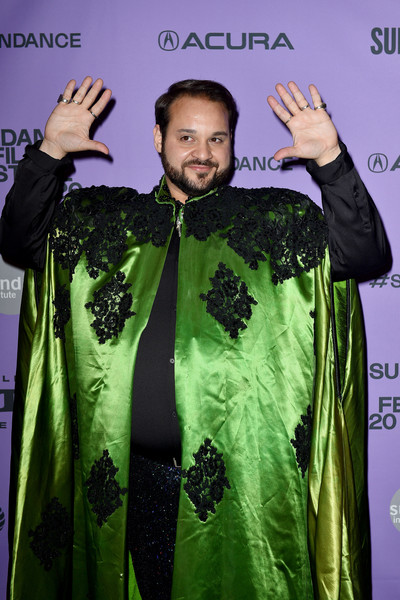
As a documentarian, I love Errol Morris. I think Errol Morris is really brilliant. The Maysles’s obviously, the Maysles brothers were the best documentarians. They really informed my view of documentary filmmaking. Gosh, there really is so many and this answer may differ in a week. Sometimes it’s easier to name favorite movies than directors for me.
My favorite movie is really weird because that’s another one that changes. I’ll tell you some of my favorite movies. I’m a dork and still absolutely love the Wizard of Oz. I love Sunset Boulevard. I love The Lion in Winter. I love The Sunshine Boys. I really loved Todo Sobre Mi Madre by Almodóvar. Those are the top five that always come to mind, but there’s so, so many.
How many hours a week on average are you spending when in a project, either when you’re directing, filming or editing.
That’s a good question that I’ve never quantified. I’ll tell you why. I’m a workaholic. I love working because I love my work. When I’m not filmmaking, I co-founded and co-directed a local indie movie theater called O Cinema in Miami. I love that, too. Obviously, my focus now these days is probably a little more on the filmmaking, but I’m still very involved.
I’m the kind of workaholic that has trouble shutting off my mind around the creative process. What I could tell you is this. I’ve never had a 9 to 5 practice. I’ve never gotten up in the morning, sit down and then clocked out at six o’clock. I think it’s because my brain is not built like that.
So, what I find is that I’m working all day long, but with breaks in between for a living. Several years ago [I] basically built a home office and shifted from working at the theater to mostly at home. [There’re] good and bad parts to that. The bad part is that you feel like you’re working all the time because your workspace and your living space are the same.
The good part is that it allows you to take a three-hour break to watch Lord of the Rings on a Tuesday if you decided that’s kind of what you need or to just walk away and do other things. So, I don’t have a finite schedule.
What I have done in the last couple of years is I’ve really tried to organize my brain so that when I am working, I don’t feel like I’m spinning my wheels. Because when you’re doing a project, it’s really easy to know what you have to do, right? Like I have to schedule a shoot. I have to spend time in archival, I have to talk to color grading. I have to edit.
Support Chicano/Latino Media. Subscribe For Only $1 Your First Month.
That’s totally easy, because those are like one step after the other. But when you’re in this weird space where you finished the project or the project is going and you’re thinking about what’s next, I think that that’s the most difficult space.
That’s really when the most organization is helpful, which is the space I’m at now. We finished Mucho, Mucho Amor. We’re doing press and stuff like that, but the movie’s done. It’s out there. I don’t have to do anything with it anymore. Now I have to think about all the other projects that I’m trying to get going, and this is more difficult for me because my brain just keeps going and going and going.
As a filmmaker, I think that every time I see something, I look at it through the lens of like, is there a potential story there to make it home? So, it’s harder to shut my brain down and not work on something that way.
I also find that I’m very productive at night, like when the world’s a little quieter and my phone is not going to ring and maybe my partners gone off the bed. I do find I’ll do writing or research for a couple of hours in that quiet space. I really kind of do work every day. What I tried to do more recently is really tried to limit the amount of work stuff I do on weekends.
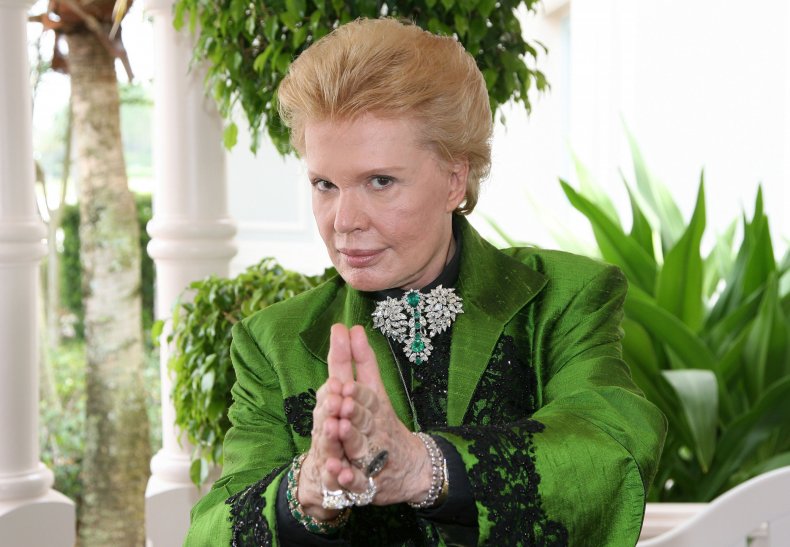
In a weird way, having the privilege of having a creative life, a life in the creative field, it doesn’t feel like work to me. I mean, it’s hard. It takes a lot to do it, but I love doing it so much that I don’t think I even consider it quote, unquote work. I don’t think about it like I’m working; I’m not working. I’m so passionate about it that if I could do it all day long, every day, I would.
What I have noticed as I got older, though, is I’m trying to be more conscious of being a better partner, a better brother, a better friend and learn to not do that stuff in personal time, try to separate it a little bit. Thankfully, my partner’s super understanding. If I take a call at nine o’clock at night because everybody is on the West Coast and I’m on the east coast. But that part’s a little harder and that’s the part that I’m trying to get that balance right.
Did you have any prejudices or expectations when you were first beginning the short, the Dolphin Lover?
It’s funny because I think it seems to be the most on the nose in the sense of how out there it is. I think kind of all of the films I’ve told, I’ve made it about out-there subjects one way or another.
Dolphin Lover is absolutely the most taboo. Did I come in with the prejudice? You know the way I came to this story; I was in San Francisco. This is where my partner lived, and I was there often. I picked up S.S. Weekly, which is, the weekly alternative paper. I was looking for things to do that weekend, like if there was any events or concerts or anything, and I came across the article that said, “Man Had Sex with Dolphin, Writes Novel” and I stopped what I was doing to read the article.
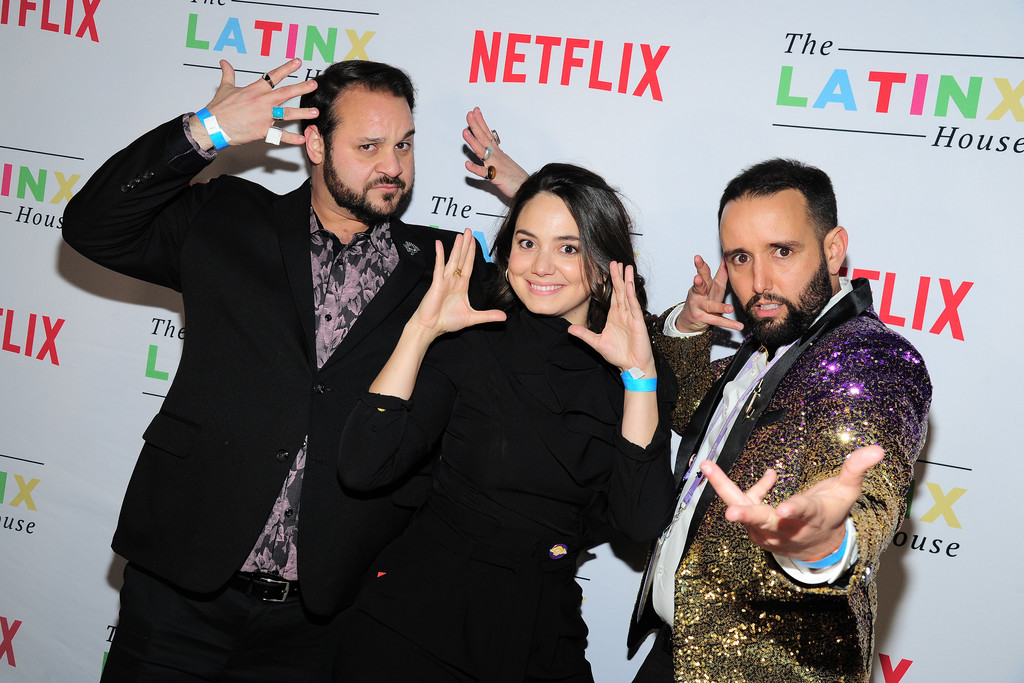
As crazy as what he did was, and then [how] out there that was to me, what was even crazier was that he was talking about it publicly. That, to me, seemed to be actually the craziest thing, right. Because one thing is doing this thing that mostly everybody, myself included, thinks is objectionable. Another thing is telling the world about it, because when you do that, you know that you’ve just painted a big target on yourself.
So, as I approach this film, I thought about different ways of doing it. One of the thoughts was like, “well, do we bring in, do we interview sex therapists? Do we interview animal rights activists? Do we showcase all these people who can tell us how wrong what he did is? And it shows the juxtaposition of what they’re saying and what he’s saying.”
This is the one I made with Joey Daoud. He’s a very dear friend. I think part of it is, I don’t know that we need all of that because most people are going to come in with the prejudice and deeply rooted belief that what Malcolm did was wrong. So, we don’t have to preach to the choir.
“I don’t think there’s anything that really comes out of just ridiculing or making fun of someone or just being abusive.“
At the same time, as a filmmaker and really as a human being, I’m not interested in poking the tiger in the cage, right? Not to say I don’t have strong opinions or convictions, but I don’t think there’s anything that really comes out of just ridiculing or making fun of someone or just being abusive. That’s not an interesting me. It’s actually one of the interesting comments I got a lot from Dolphin Lover. So, what I thought didn’t really matter.
For the record, I think Malcolm’s a great guy. He’s really lovely. I think certainly, I’m not a supporter of sex with animals because it comes down to a question of consent. Consent is the most important thing in any situation, any kind of relationship when you are the person that has more power, in particular. So, I didn’t agree, necessarily with what Malcolm did, but I also realize that it wasn’t my job to agree or not. I didn’t need to tell people how to feel either.
What I needed to do was show the complexities of this and that was really important for me. It’s that, here’s this person who is charming, intelligence, he could be really funny, talented for sure. He’s a talented writer; he’s a very talented photographer who in this other element of his life is, [what] regular society is going to consider extremely questionable.
This is not like he woke up one day and decided that he was going to be a zoophile or a beastliest. It’s like there’s more there. So what we tried to do with that film is showcase what happened, the kind of shocking elements of the story, but at the same time show that maybe, there’s a multitude of reasons why that did happen and the multitude of things in his life that might have contributed to that. Doing that in a way that the audience can walk away feeling, however they feel.
Support Chicano/Latino Media. Subscribe For Only $1 Your First Month.
I think that’s something I often do with my films. I feel like I like to present the facts, the many layers of the story and let people decide how they feel about it. I’ll tell you; it doesn’t always work to my best interest because I think hating is easy. People want to hate, and people want to gang up on somebody that they disagree with. We see it in the conversations around our politics. We see it in the conversations, comments on articles. We can be so divided, and we want to exist in echo chambers.
With Dolphin Lover, it’s really interesting because when I submitted it to festivals, it didn’t play a ton of festivals. It’s played several but didn’t play a ton. One of the comments, a programmer, told me, somebody who I really respect, said “you know, you humanized him too much.”
The program assessor did not accept the film. They said, “you humanize them too much.” I said to myself, “Jeez, that’s the worst feedback I’ve never gotten.” Because of course, I’m going to humanize him. He’s a human and empathy is something we should all try to practice. It’s the same thing, like when you see those comments. I mean, we got death threats from that film.
We got two death threats when we released that film. It’s because people want you to feel the way they feel, and people want you to gang up on people. I’ve never prescribed to that philosophy, and I think as a filmmaker, my job, it’s not gang up and take something down, but it’s really to help unpack complicated stories and let us think about things in different ways.
Return next Tuesday (Sept 1st) for part 2 of our interview.
Get Stories Like This In Your Inbox
To receive weekly updates like this in your inbox, subscribe to The Daily Chela newsletter here.



